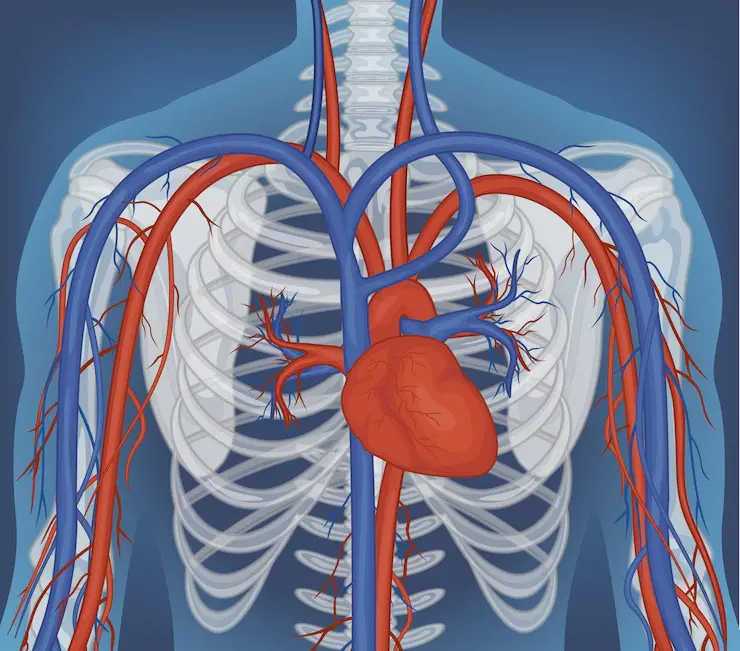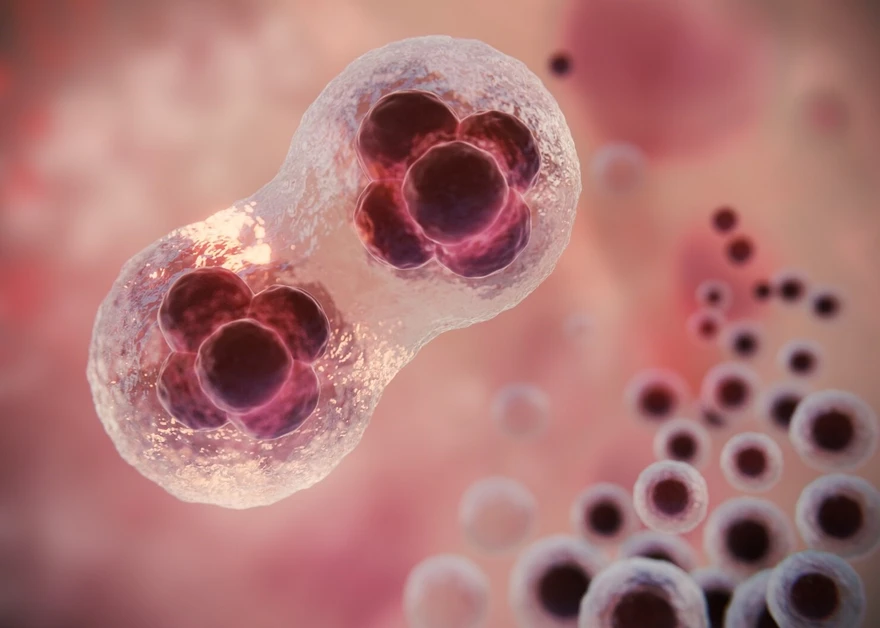Preventive Healthcare
Exploring Arteries: Functions, Types, and Structure in the Human Body
5491 Views
0

The human body is mystical. It hides many unknown facts inside. Every individual is different from others. But the bloodstream and its architecture remain the same. Bood is the fundamental fluid, and arteries carry it to all organs. Studies reveal that there are 20 arteries in the human body.
The human body consists of multiple internal organs performing vital functions to maintain life. The heart, lungs, liver, kidneys, brain and sensory organs receive oxygen and nutrients through the blood. Plus, the bloodstream transports essential materials and removes wastes from the body.
Importance of Arteries
Arteries are blood vessels carrying pure blood from the heart to the different organs. Pure blood is the blood emerging out of lungs filled with oxygen. Thus, arteries are essential for the cardiovascular system feeding every cell and tissue. Arteries contain oxygenated blood and lie deep under the skin.
About 10-15% of the total blood volume lies in the arterial system. There are three types of arteries in the human body. Each has a peculiar function to balance the regular functioning of all the organs.
● Elastic arteries: Brachial artery, Radial artery and Femoral artery
● Muscular arteries: Aorta and Pulmonary artery
● Arterioles
Structure of the Arteries in the Human Body
The structure of the arteries consists of layers, flexibility and thickness. Thus, they sustain the high pressure exerted by the heart and release them to the respective organs and cells. However, each artery plays a distinct function in the human body.
Layers
Arteries have three layers or tunics. Each layer has a definite function in its life cycle. Tunica intima is the innermost layer offering a smooth blood flow. Next is Tunica media, the middle layer, which maintains elasticity and blood pressure. Lastly, Tunica adventitia is the external part with elastic fibres and protects the inner layers.
Flexibility
Aorta, among all, is the largest artery in the human body. It is highly elastic due to the abundant elastic fibres in its walls. The elasticity makes arteries expand and recoil when blood passes through them. Thus, they offer constant blood flow and maintain blood pressure.
Width
Arteries can vary in size and diameter. Large arteries have thick walls with well-developed tunica media to withstand the high pressure of blood flowing from the heart. These arteries then branch out into smaller arterioles, and their walls become thinner with reduced blood pressure.
Functions of Arteries
Arteries have diverse functions for the regulation of body temperature and oxygenation. The functions of the arteries in the human body are as follows.
Supplying Oxygen-Rich Blood
Arteries are essential in supplying the necessary elements to the body's organs. They carry oxygen-filled blood from the heart to various organs and tissues. This blood nourishes cells and provides the necessary nutrients for proper functioning. Thus, they maintain constant nourishment for every cell.
Blood Pressure Regulation
The smooth muscular cells in the tunica media contract and relax to balance the blood pressure. Vasoconstriction increases blood resistance raising blood pressure. Conversely, vasodilation decreases resistance to lower blood pressure.
Consistent Blood Flow
The elasticity of arteries creates the systole and diastole. Systole is the heart's contraction, and diastole is the heart's expansion. Arteries react oppositely to fill in blood and spread to the arterioles.
Even Blood Distribution
Arteries branch out in an intricate network throughout the body. This network reaches every little tissue and organ. As a result, blood is distributed evenly to various organs and tissues. Thus, they fill them with the necessary oxygen and nutrients for their proper functioning.
Arteries and veins are the two types of blood vessels, depending on the blood they carry. Veins carry impure blood from the body to heat to fill in the lungs and blend the oxygen. Therefore, both are equally beneficial for the smooth running of human life.
Thus, it is clear that any irregularity in their functioning or structure can affect the well-being of a person immensely. Thus, it is very important to take care of these necessary blood containers in our bodies. Otherwise, it may lead to complications that are often irreparable.
Cardiovascular Diseases
CVDs form a group of disorders that affect the heart and blood vessels. They cause the death of about 18 million people globally. Some well-known names are coronary artery disease, heart failure, stroke and peripheral artery disease. These diseases are increasing life threats for people.
The reasons for people suffering from CVDs are listed below:
● Unhealthy lifestyle
● Unhealthy diet
● No physical activity
● Addiction
● Hereditary factors
● High cholesterol levels
● Sodium-rich food
● Chronic renal disease
● Obesity
In the early stages, people feel chest pain, shortness of breath, fatigue and abnormal heartbeat. However, many people may not understand the severity of their problem until they face a heart attack or a stroke. As a result, early diagnosis and preventive measures are the only options for managing CVDs.
Although several measures and initiatives align with government and private institutions. Thus, they try to raise awareness, educate communities, and implement policies for healthy environments. Research and advanced technologies in the medical field enhance diagnostic capabilities, treatments and prevention programs for individuals with CVDs.
Doctors, nurses, medical technicians and leading hospitals are constantly combating cardiovascular disease requirements. However, one must take prevention on an individual level by adopting healthier lifestyles, early detection, quickly addressing the issues and getting medical advice to reduce the impact of these conditions on individuals and society.
Book Blood Test
In Summary
Early prevention can save the lives of many. Therefore, people can refrain from getting CVDs by moulding their day-to-day activities. They can eat fresh food, do regular exercise, sleep well and keep away stress to avoid catching these fatal diseases. And regular advice from doctors helps to beat the upcoming dangers.Metropolis Healthcare is a renowned institution with top doctors and medical staff in India. It has comprehensive medical services and state-of-the-art facilities to treat patients under the best medical professionals. Further, the hospital staff and doctors are committed to offering high-quality patient care, advanced treatments and digital technology to meet healthcare needs.













1701259759.webp)









 WhatsApp
WhatsApp